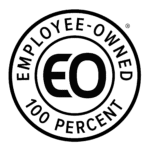Want to invest thoughtfully, but worried that a “socially conscious” portfolio might not offer the best returns?
Here’s the great news: Nearly 2/3 of large cap blend funds that are considered socially conscious by investment professionals have 5-year returns that beat the Morningstar average for the category.
Morningstar is a rating company that classifies funds into categories according to their holdings, then calculates an average for several metrics including performance, expenses, and more. It defines a socially conscious fund as “any fund that invests according to non-economic guidelines.” So the funds Morningstar rates as socially conscious are not looking primarily at growth and returns, but at factors such as environmental responsibility, and the avoidance of industries such as alcohol or defense.
Other investment professionals call the socially responsible investment category “Environmental/Social/Governance” or ESG. Environmental issues—reducing environmental degradation, managing resources, minimizing the carbon footprint—are all important. Other concerns include Board accountability (ensuring that senior management runs the company in the long-term best interests of shareholders) and how the company treats and compensates employees and executives.
Isn’t ESG just a trendy, crunchy-granola thing?
ESG been a growing part of the landscape since the early 1970s, and has provided excellent returns for thoughtful and committed investors.
The truth is the popularity of ESG investing in the US has lagged behind other parts of the world, including not only Europe but also Africa and the Middle East.
But can I truly create a diversified portfolio with ESG investments?
Morningstar data shows multiple ESG funds in all major asset classes, including large cap, small cap, international stock, and fixed income. A well-balanced portfolio can be made entirely of these funds.
Isn’t it expensive?
If anything, socially conscious funds may be less costly than their peers. For instance, Morningstar shows the average expense ratio for ESG Large Cap Blend mutual funds is 0.66%, comparing very favorably to the category average of 1.04%. The average of ESG funds across categories is 0.87%–and the least expensive is offered at 0.15%. Eight new funds have been launched so far in 2016 already at an average of 0.32%.
ESG investing is economically sensible
Companies that treat employees well, offer shareholder transparency, are thoughtful about the use of resources, and don’t take environmental shortcuts are likely to be solid organizations over the long haul. Excellent corporate governance, as it happens, aligns well with ethical behavior generally.
If you’re interested in ensuring your portfolio reflects your values, talk to us about ESG funds.




